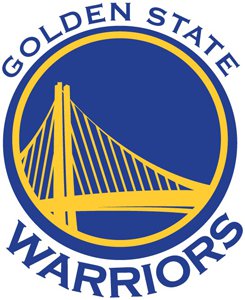When the Golden State Warriors on Wednesday night take a seat at the NBA lottery for the 21st time in 28 years, holding the No. 7 slot in the draft, we can only hope the results vanquish an enduring misconception about this woebegone franchise.
You’ve heard it so often you probably believe it: The Warriors have rotten luck in the lottery.
This assumption is as false as co-owner Joe Lacob’s insistence that he and fellow co-owner Peter Guber weren’t casting furtive glances toward San Francisco while handing over $450 million to buy the team.
The Warriors’ lottery history stinks not because of bad luck, but because of bad choices. And when they make a good choice, they still could find a way to blow it.
Five of the nine times the Warriors made a lottery-era top-seven pick – theoretically designed to appreciably improve if not dramatically alter a franchise – they spit all over themselves.
There are exceptions, notably Chris Mullin (No. 7 overall in 1985), who is in the Pro Basketball Hall of Fame, and Mitch Richmond, taken fifth overall in 1988 and the best player in that draft. Though the Jason Richardson choice (No. 5 overall) in 2001 was acceptable, future All-Stars Zach Randolph and Tony Parker were available.
It’s too soon to pass judgment on their last top-seven pick, Ekpe Udoh in 2010, but the other five occasions represent not a conspiracy against the Warriors but a franchise unable to get out of its own way.
With Don Nelson as coach and general manager in 1993, the Warriors drafted Penny Hardaway third overall, parlayed him into power forward Chris Webber (No. 1 overall) – and failed to treat C-Webb as an expensive investment in their future. Nelson was heavy on verbal abuse – and refused to adjust when he realized they alienated Webber.
They took the right guy, as Webber turned out to be the best player in that draft, but they lost him with tone-deaf management.
Two years later, with Webber and Nelson gone, the Warriors had the good fortune to move up from fourth to first in the lottery. New general manager Dave Twardzik used the No. 1 overall pick to take Maryland power forward Joe Smith, who had a decent career.
Twardzik, who a year later would say he “wasn’t that impressed” with a 17-year-old named Kobe Bryant, took the wrong guy. Kevin Garnett, then 19, went fifth overall.
Three years later, with Twardzik dismissed, first-year G.M. Garry St. Jean and head coach P. J. Carlesimo came away with North Carolina power forward Antawn Jamison. The Warriors knew about a 6-foot-11 German youngster named Dirk Nowitzki. They passed. The Warriors brought Kansas star Paul Pierce to Oakland for a workout, and passed on him too.
And no, we haven’t forgotten about Chris Washburn, taken third overall in 1986 by G.M. Al Attles, one of the most star-crossed drafts ever. Chuck Person went later, as did Dell Curry. Dennis Rodman and the late Drazen Petrovic went much later.
The most recent legitimate top-seven fumble came in 2002, when the Warriors, choosing third overall, selected Duke’s Mike Dunleavy.
Yeah, I know.
St. Jean said Dunleavy, a 6-foot-9 forward, was the most versatile player in the draft. He was advertised by many personnel types as a player whose skills reminded them of Larry Bird.
Warriors’ fans, aware that Bird had resurrected the Celtics in the late 1970s, got all warm and giddy. They waited for Dunleavy to change the Warriors for good.
He never did, never came close. Even in a draft relatively modest on talent, Dunleavy was irrationally overrated and a profound disappointment. He could do everything, though nothing particularly well. He had nothing in common with Bird other than height and pigmentation.
Dunleavy was booed out of the Bay Area, traded to Indiana. He continues to hear boos when he returns as an opponent.
Once again, the Warriors chose the wrong guy. Amare Stoudemire, another teen-ager, went ninth overall in 2002. Duke power forward Carlos Boozer went 34th. Luis Scola went 55th.
This is not bad luck. This is shoddy management, over a sustained period, a corrosive mix faulty evaluations and “safe” choices, resulting in a series of regrettable decisions that have convinced many folks the Warriors are victims of some kind of lottery curse.
Rookie G.M. Bob Myers, who will represent the Warriors in New York, has an opportunity to distance himself from the errors of his predecessors. It won’t be easy to break tradition.
We know what the reconstituted Warriors need: a wing player with the ability to create off the dribble. Every true contender has at least one such player. Oklahoma City has three, and they’re all very young.
Myers will have a chance to get that if they remain in the top seven, which they have a 72.4 chance of doing. As for No. 1 overall, where Kentucky big man Anthony Davis sits, the Warriors have less than a four percent chance of moving that far up.
If they don’t happen to move to the top of the draft, don’t blame the ping-pong balls. If they stay at No. 7, don’t credit the ping-pong balls. It’s about the player the Warriors take and their ability to cultivate him.
It has been 24 years since this franchise last got its money’s worth from the lottery. It’s overdue for a good choice, followed by successful development.
___
©2012 The Oakland Tribune (Oakland, Calif.)
Visit The Oakland Tribune (Oakland, Calif.) at www.insidebayarea.com
Distributed by MCT Information Services








